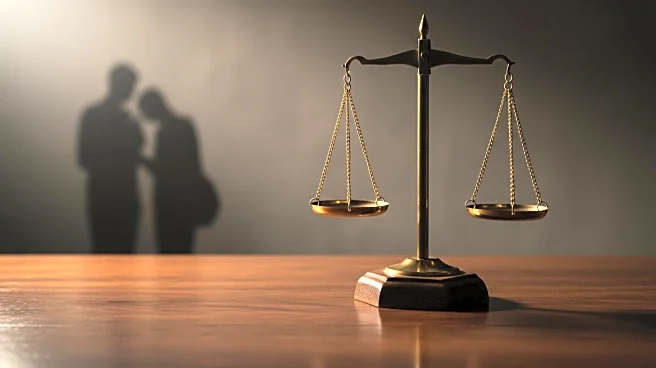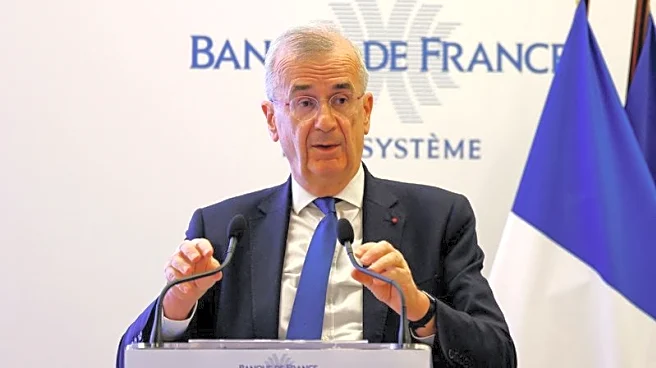What is the story about?
What's Happening?
The Justice Department has released audio and transcripts from Ghislaine Maxwell's testimony, which has led to significant backlash from the family of Virginia Giuffre, a prominent accuser of Jeffrey Epstein. The family expressed outrage, claiming that the release provides Maxwell a platform to rewrite history. Maxwell's testimony included denials of witnessing any inappropriate conduct from men, including President Trump, and refuted the existence of a 'client list' of individuals who benefited from Epstein's crimes. Senator Adam Schiff supported the Giuffre family's stance, suggesting that Maxwell's statements are strategically aimed at securing a pardon.
Why It's Important?
The release of Maxwell's testimony is significant as it touches on the broader issues of justice and accountability in high-profile cases involving Epstein. The Giuffre family's reaction highlights concerns about the potential undermining of survivors' experiences and the justice system's handling of such cases. The controversy may impact public trust in the Justice Department and influence ongoing discussions about legal processes for individuals involved in Epstein's network. Stakeholders, including lawmakers and advocacy groups, may push for further transparency and accountability in handling similar cases.
What's Next?
The release of the transcripts may lead to increased scrutiny of the Justice Department's decisions and calls for further investigation into Maxwell's claims. Advocacy groups and political leaders might demand additional measures to ensure justice for Epstein's victims. The situation could also prompt discussions about potential legal reforms to prevent perceived injustices in high-profile cases. Public and political pressure may influence future actions by the Justice Department and other legal entities involved.
Beyond the Headlines
The ethical implications of releasing such testimonies are profound, as they may affect the perception of justice and the rights of victims. The case underscores the challenges in balancing transparency with the protection of survivors' narratives. It also raises questions about the influence of powerful individuals in legal proceedings and the potential for manipulation of public narratives. Long-term, this could lead to shifts in how similar cases are managed and the role of public opinion in legal outcomes.


















